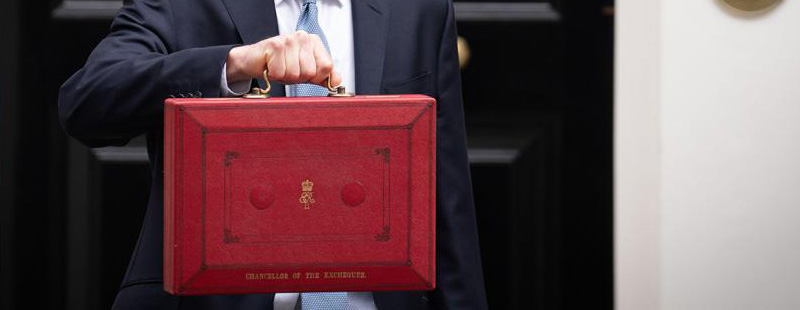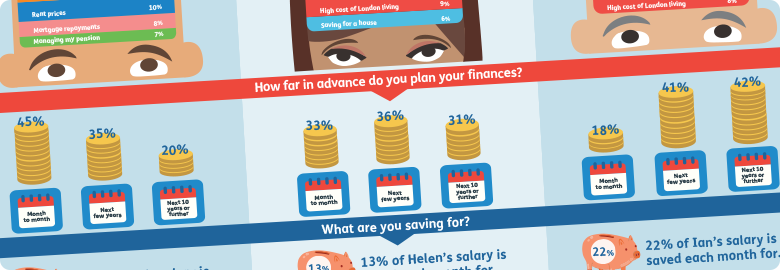If like many parents and grandparents you are considering how you can help cover the cost of university we have put together some top tips to help you start planning and saving.
Research from the Institute for Fiscal Studies has shown that on average the 2017 cohort of students will graduate with around £57,000 (including interest) in student debt.
How much does university cost?
It’s easy to see how quickly the total amount of student debt can top £57,000.
UK tuition fees vary depending on your home country but can be up to a maximum of £9,250 per year for an undergraduate degree. As a typical undergraduate degree lasts three years, the tuition fees alone could account for up to £27,750.
On top of tuition fees are living costs; accommodation, utility bills, books, travel, food, and socialising. According to TES in 2016 the average living costs for students per year was £8,990 amounting to £26,970 over the three-year period.
When you’ve added the interest you are back at your headline figure of around £57,000.
Saving in advance
Obviously saving well in advance is a good idea for any student and their parents. Some parents now start saving even before their children are born with 40% of parents-to-be already saving for their children's university fees. Most of these will have around £900 saved by the time their baby is born, and around 20% of future parents will have saved £2,000 towards their child's education, prior to birth.
The sooner you start saving the better. To generate a pot of around £60,000 (before any costs or tax) you would need to have saved £170 per month over 18 years with an annual return of 5% on your savings. This figure is unrealistic for many families, but saving just £25 a month at an annual rate of 5% would generate around £8,700 after 18 years and is a considerable amount to put towards helping with university costs.
If your children are still young, here are some of the savings options available to you that are specifically set up for children:
Cash Junior ISA
At present you can save a maximum of £4,260 (2018-19) yearly into a Junior ISA, which your children can access when they reach the age of 18. These ISA accounts offer the advantage of being tax-free. We don’t offer these but you may want to consider them, especially for shorter term savings and for security.
Stocks and Shares Junior ISA
So long as you stick to the £4,260 maximum limit you could also open a stocks and shares Junior ISA alongside or instead of your cash Junior ISA. The principal benefit of stocks and shares ISAs is that potential rewards can be much higher. They are also tax-efficient because their investment is free from any liability to Capital Gains or Income Tax. Remember the value of these investments can go down as well as up. If you are considering this option see the Metfriendly Monthly Savings Junior Savings ISA for more details.
Lump Sum Junior ISA
Parents and grandparents who don't have the ability to save on a regular basis for their child's education may prefer to pay a larger one-off payment into a Lump Sum Junior ISA. Currently you can gift up to £3,000 annually without incurring any liability to inheritance tax.
A parent or guardian must open the Junior ISA account but the money belongs to the child and they can only withdraw the money after turning 18. Each child can only hold one Junior Cash ISA and one Junior Stocks and Shares ISA during their childhood, but you can transfer to different providers. If your child is 16 or 17 they can take out an adult ISA and save up to £20,000 a year as well up to £4,260 in a Junior ISA.
Children’s Savings Plans
These savings plans are only available through Friendly Societies. You can choose to pay into a plan for between 10 and 25 years. The maximum amount you can pay is £270 a year or £300 if you pay in £25 per month. As long as you pay into the plan for a minimum of 10 years your child will not pay Capital Gains Tax or Income Tax. With a Metfriendly Children’s Savings Plan you can save for child’s future for just £25 a month.
Even if your child is starting university in a few months, it’s never too late to start saving but you’ll want to maximise your savings potential. Make sure you shop around for the best deals. Use a comparison website such as Money Saving Expert or Money Supermarket.
Check for grants, bursaries and scholarships
If your child is heading off to university in the next 12 months you should check the university’s website for grants and bursaries and apply for any that your child is eligible for. Many universities do offer scholarships to encourage applications from high achievers, so if your son or daughter is motivated they can get financial rewards for putting in the extra effort.
Applying for student loans
A student loan is likely to be one of the cheapest ways to borrow money. The student loan your son or daughter can apply for is split into a tuition fee loan and a maintenance loan. The tuition fee loan is paid directly to the university. The maintenance loan is dependent on your household income and where they are living during study. More detailed information about student finance can be found on gov.uk The loan will have to be repaid once they start working and earn enough to pay it back. The Student Loan Repayment Calculator gives you an idea of how much you might have to pay back and over what period of time.
Student budgeting
If your child has had little experience of managing money then help them prepare a budget before they leave. This will help them see how much they can afford to spend each week and hopefully keep their overdraft to a minimum. Download our budget planner or take a look at the UCAS budget calculator.
Help them choose a bank account
You can save a substantial sum of money if your child chooses a bank account that best suits their needs over the course of their 3 or 4 years at university. Many student accounts offer perks like railcards or travel insurance. Overdraft facilities are also an important feature and can be a cheap way to borrow money compared to credit cards and bank loans.
You may be able to help your child by cutting your own costs which will allow you to save more towards their university fund. Take a fresh look at your spending and review where you can make savings. Download our budget planner to help you work out where you make savings.






































